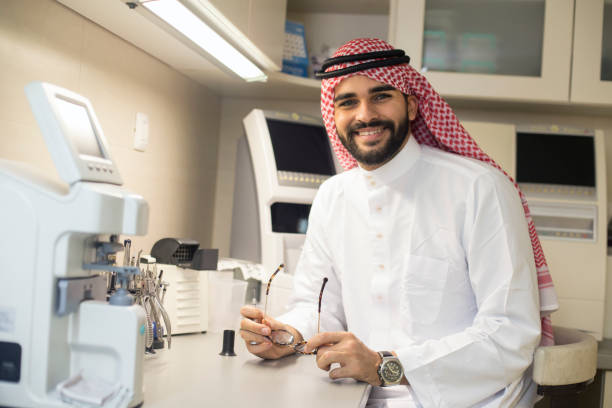Welcome to the dynamic landscape of healthcare exploration in the United Arab Emirates, where Health Research in UAE takes center stage in advancing medical knowledge and improving the well-being of the population. In this blog post, we will delve into the vital role of Health Research in UAE, exploring how ongoing studies and initiatives contribute to the nation’s commitment to enhancing healthcare practices.
Health Research in UAE encompasses a diverse array of investigations, from understanding prevalent health challenges to exploring innovative solutions. This exploration into Health Research in UAE not only enriches academic endeavors but directly influences the development of evidence-based strategies for the betterment of public health.
Let’s embark on a journey to understand the significance of Health Research in UAE, exploring how it shapes the future of healthcare, fosters innovation, and contributes to the well-being of communities both within the UAE and beyond.
Health Research in UAE
Dubai Science Park, Al Jalila Foundation, Public Health Research Center, and Health Research Bank collaborate on medical research in the United Arab Emirates (UAE). The UAE Genomics Council was established with the aim of enhancing the healthcare system to a world-class standard. The council’s role includes the regulation, oversight, and guidance of the integration of the ‘Emirati Genome Program’ into the nationwide healthcare system.
What is the Emirati Genome Program?
The Emirati Genome Program is a nationwide initiative with the goal of leveraging genomic data to enhance the well-being of the Emirati population. This endeavor involves scientific research and exploration focused on characterizing and deciphering the genetic makeup of UAE Nationals. The primary objective is to facilitate the prevention and treatment of chronic diseases.
The program extends an invitation to Emirati citizens to willingly participate in the study by visiting designated sample collection sites and offering a single blood sample. State-of-the-art sequencing technology and artificial intelligence will be employed to create and evaluate extensive genomic data, culminating in the development of a UAE-specific reference genome for the benefit of its citizens.
Expected Results
The favorable outcome of the program will empower healthcare professionals with valuable data, enabling them to offer enhanced diagnostic capabilities, personalized treatment choices, and preventive programs customized to an individual’s distinct genetic profile. Furthermore, it will enhance the ability to predict and prevent both current and future genetic disorders, facilitating the introduction of innovative therapies for rare and chronic ailments.
The UAE intends to harness the genomic information to formulate healthcare strategies that cater to the unique requirements of the population, both presently and in the years to come. This approach will contribute to the progression of preventative medicine within the nation.
Like Health Research in UAE, you may also like to read about medical emergencies in the UAE.
Formation of UAE Genomics Council
The UAE Genomics Council was established with the goal of enhancing the nation’s healthcare system to meet world-class standards. This council will play a pivotal role in overseeing, regulating, and guiding the integration of the ‘Emirati Genome Program’ into the nationwide healthcare infrastructure. Additionally, it will actively support technology startups and companies while fostering collaborations with leading global technology firms to propel cutting-edge genomics research.
To implement the findings of the ‘Genome Program’ and ensure the delivery of top-tier healthcare services, the Abu Dhabi Health Services Company (SEHA) will take a leading role. The Emirati Genome Program represents a strategic partnership between the Department of Health, Abu Dhabi, and the Abu Dhabi-based Group 42.
Notably, in April 2020, a research team at the Mohammed Bin Rashid University of Medicine and Health Sciences-MBRU achieved a significant milestone by conducting the UAE’s first full genome sequencing of the COVID-19 virus from a patient in Dubai.
For further information and details on how to participate in the Emirati Genome Program, please visit their website (available in Arabic) or reach out via phone at 800 UAE GENOME (800 823 436663).

Medical Research
Medical researches are as follows…
Health Research Bank
The Ministry of Health and Prevention administers a health research bank, providing researchers with access to various research initiatives carried out within the United Arab Emirates. This platform encompasses contributions from both prominent government and private healthcare institutions.
Dubai Science Park
Dubai Science Park, resulting from the merger of DuBiotech and Energy and Environment Park (EnPark), serves as a hub for companies engaged in life sciences research and development. The park offers state-of-the-art laboratories and essential support services to facilitate their work in this field.
The subsequent organizations engage in medical research in the United Arab Emirates.
Al Jalila Foundation
Al Jalila Foundation is dedicated to medical research, medical education, and healthcare provision in the United Arab Emirates. Additionally, it extends scholarships for medical studies. As the UAE’s pioneering independent multi-disciplinary medical research center, its focus areas include cancer, cardiovascular diseases, diabetes, obesity, and mental health.
Public Health Research Center
At New York University Abu Dhabi, there is a Public Health Research Center (PHRC). They have made specific centers for studying important topics in Abu Dhabi:
- Diabetes Research Center
- Obesity and Genetic Factors in Diabetes Research Center
- Human Mouth Microbiome Research Center
- Stopping Smoking Research Center
Read Also:
- Research Institute of Medical & Health Sciences (RIMHS) at the University of Sharjah
- Research and Innovation Centre– Department of Health Abu Dhabi
- Mohammed bin Rashid Medical Research Institute
Cloning
Dubai made history in April 2009 when the world’s First cloned camel, a female calf named Injaz (meaning “achievement”), was born at the Camel Reproduction Centre (CRC).
In November 2015, Injaz had her own calf, demonstrating that cloned camels can be fertile and reproduce naturally. It’s essential to note that the UAE has prohibited human cloning and any research or experiments connected to it.
Conclusion
Health Research in UAE plays a pivotal role in shaping the present and future of healthcare in the nation. The dedication to Health Research in UAE is evident in the impactful studies and initiatives that continually strive to improve medical knowledge and practices.
The significance of Health Research in UAE extends beyond academic pursuits, directly influencing healthcare policies and interventions. Through ongoing Health Research in UAE, valuable insights are gained, contributing to the development of effective strategies that address health challenges and enhance the overall well-being of the population.
In summary, the commitment to Health Research in UAE reflects a forward-thinking approach to healthcare, fostering innovation and progress. As the UAE continues to invest in Health Research, it ensures that the nation remains at the forefront of medical advancements, ultimately benefiting the health and prosperity of its people. The continued emphasis on Health Research in UAE reinforces the nation’s dedication to building a healthier and more resilient society.

